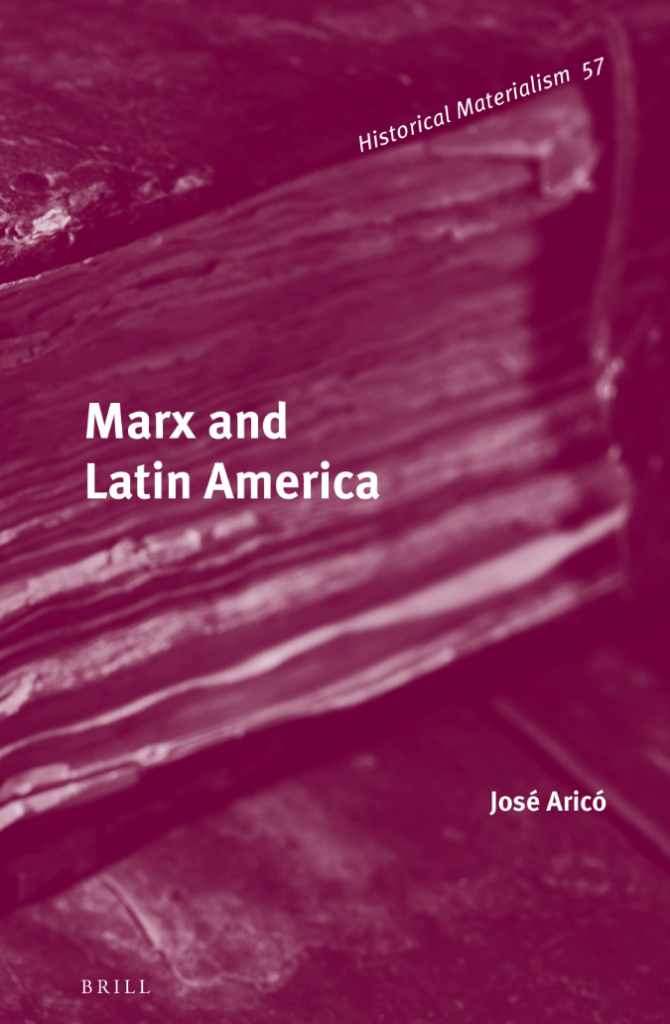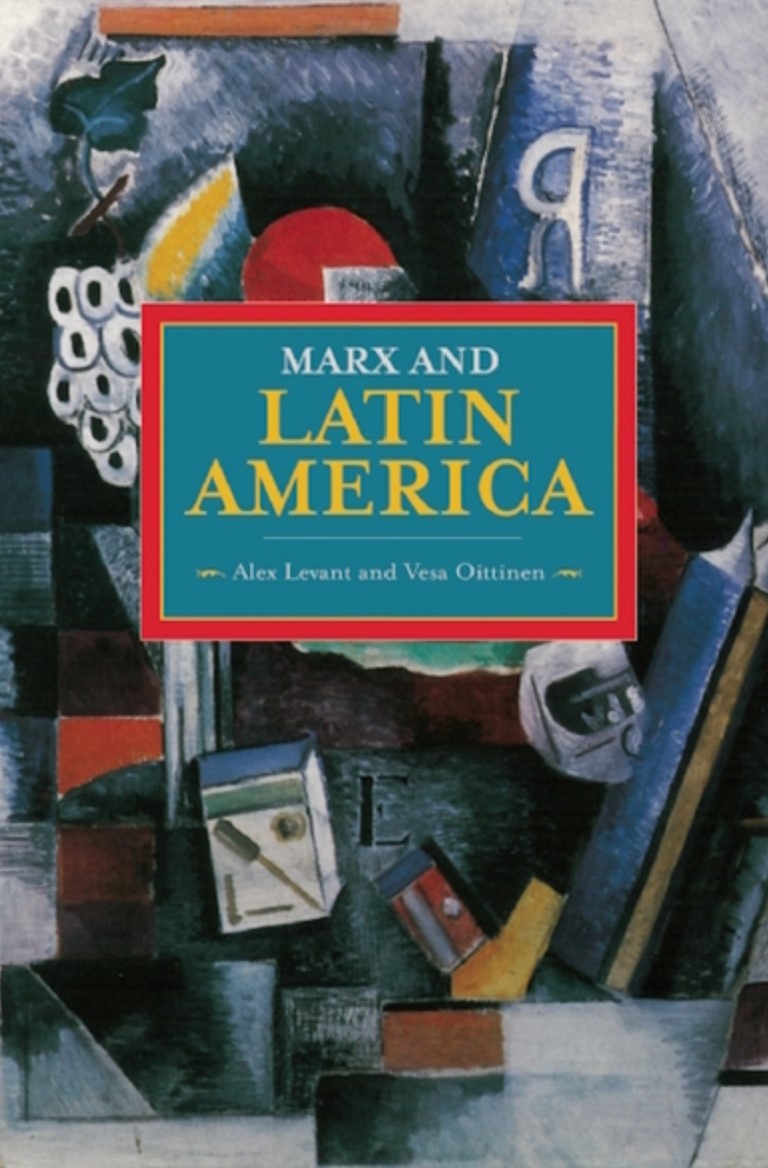José Aricó. Translated from the Spanish by David Broder.
In a work centred on Marx’s harsh biography of Simón Bolívar, José Aricó examines why Latin America was apparently ‘excluded’ from Marx’s thought, challenging the allegation that this expressed some ‘Eurocentric’ prejudice.
Aricó shows how the German thinker’s hostility towards the Bonapartism and authoritarianism he identified in the Liberator coloured his attitude towards the continent and the significance of its independence-processes.
Whilst criticising Marx’s misreading of Latin-American realities, Aricó demonstrates contemporaneous, countervailing tendencies in Marx’s thought, including his appraisal of the revolutionary potentialities of other ‘peripheral’ extra-European societies. As such, Aricó convincingly argues that Marx’s work was not a dogma of linear ‘progress’, but a living, contradictory body of thought constantly in development.
English translation of the Marx y América Latina edition, Fondo de Cultura Económica, 2010.
Biographical note
José Aricó (1931-91) was among Argentina’s leading twentieth-century socialist thinkers. Co-founder of the journal Pasado y Presente, his works include Mariátegui y los orígenes del marxismo latinoamericano (Siglo XXI, 1978) and La cola del diablo: Itinerario de Gramsci en América Latina (Puntosur, 1988).
Readership
Academic libraries, post-graduate and undergraduate students, and lay readers interested in the Latin-American Left and the reception of Marxism in the extra-European world.
Table of contents
The Latin-American Marxism of Aricó: the Search for the Autonomy of Politics in Marx’s Fallacy, Horacio Crespo
Introduction, Carlos Franco
Preface to the First Edition
Preface to the Second Edition
1. An Evaded Reality
2. The Growth of the Movement and the Crisis of Theory
3. The Reality and Fallacy of Marx’s ‘Eurocentrism’
4. De Te Fabula Narratur?
5. The Theoretical and Political Presuppositions of National ‘Autonomy’
6. Hegel Redivivus
7. The Political Reasons for a Disconnect
8. Marx’s Bolívar
Appendix 1. Rosa Luxemburg and the ‘Crisis’ of Marxism
Appendix 2. Hegel and Latin America
Appendix 3. Marx and the Prospects of Russian Society
Appendix 4. Marx’s Shift of Attention Towards Agrarian Communities
Appendix 5. On the Social-Democratic Leaders’ August 1914 ‘Betrayal’
Appendix 6. Marx and the Spanish Revolution
Appendix 7. Aníbal Ponce’s ‘Marginal Notes’
Appendix 8. On the Effect of British Hegemony in Latin America
Appendix 9. ‘Bolivar y Ponte’, by Karl Marx
Epilogue to the Second Edition
Bibliography
Index


